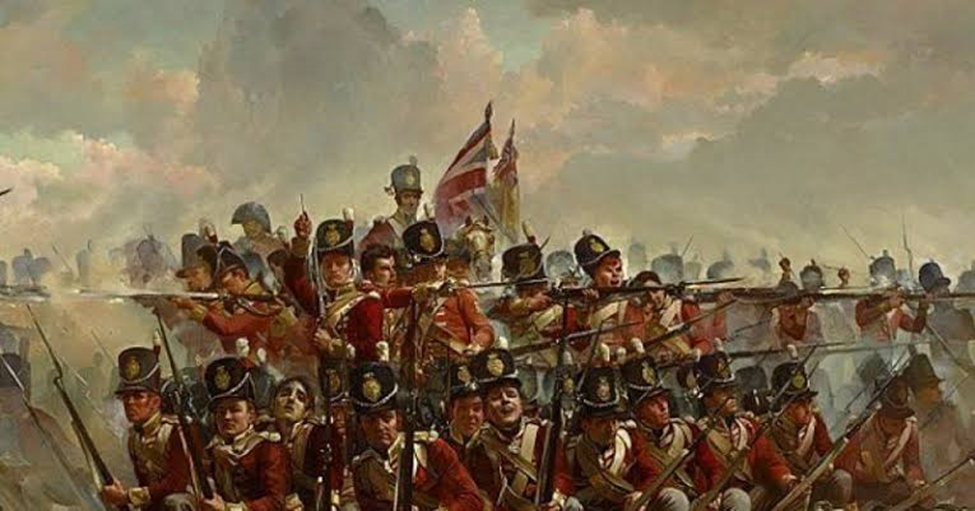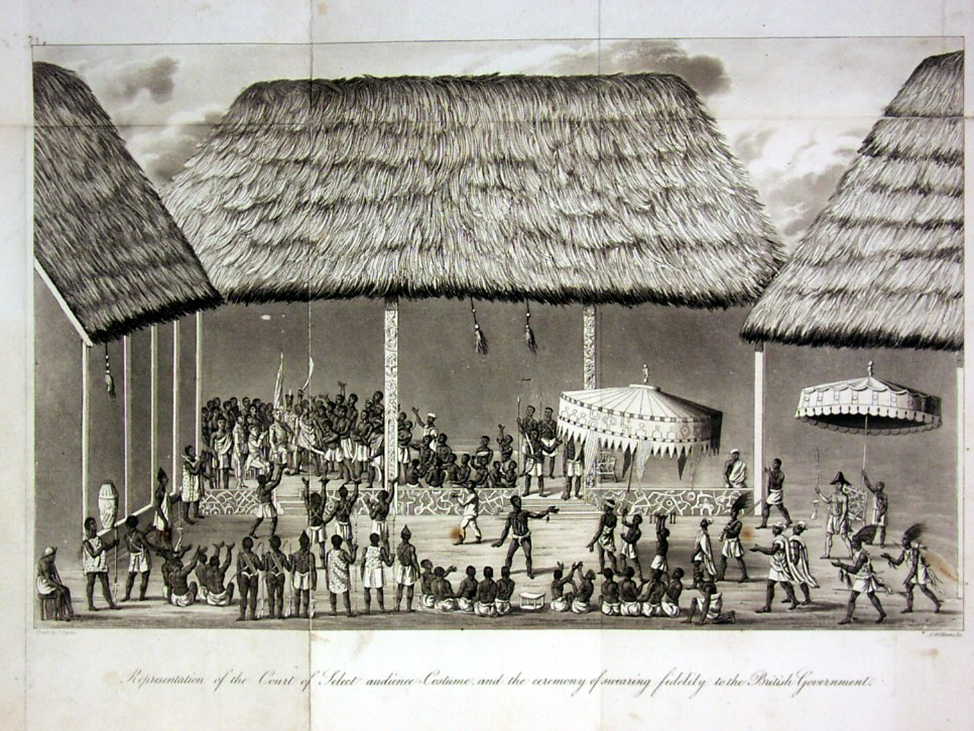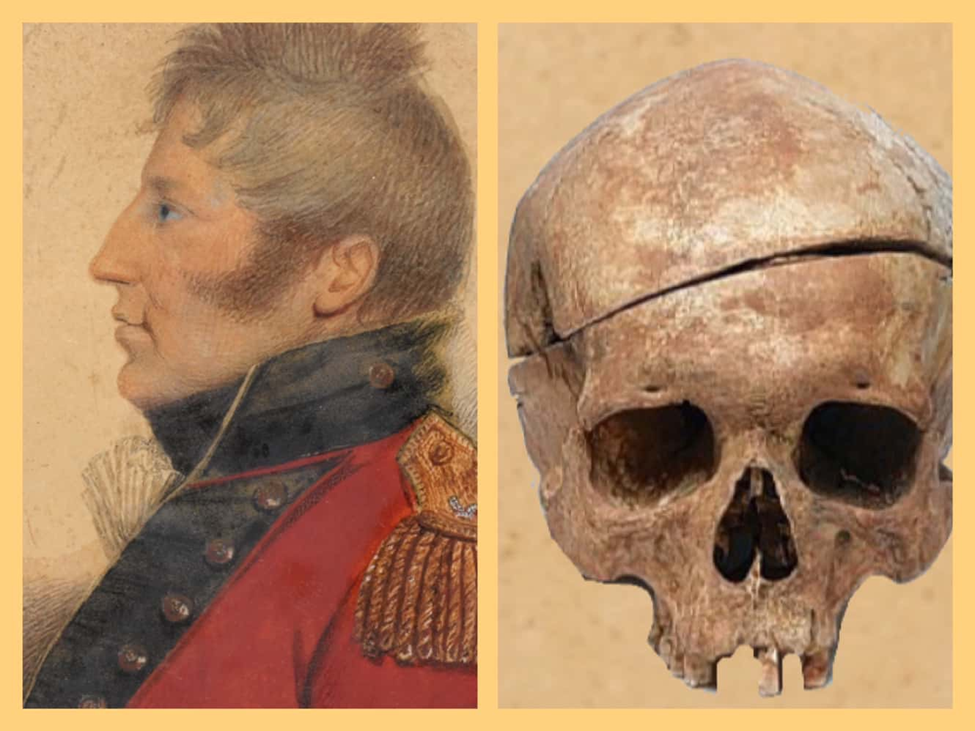By Calvin Gyasi

The Governor’s face was ghastly white. He felt weak in his knees. Never in his wildest dream did he imagine that such an incident will befall him. His pupils dilated; his heart was racing fast – faster than it had done before when he run very fast in the fields in his youth back in Ireland. The disbelief, confusion and fear that engulfed him in succession turned into morbid anger as he threatened to have Brandon hanged. What was Brandon’s crime? It was wartime and the troops were out of ammunition. Brandon did not do his due diligence and instead of bringing 4 big boxes of backup ammunition, only one box contained ammunition whiles the other 3 contained Macaroni. How did this happen and what happened afterwards?
Brandon was a British soldier who was also the supervisor of the ammunition carriers who were Local people of the then Gold Coast (Former name for Ghana). The ammunition was going to be used in warfare against the Ashanti army. It became evident that Brandon was not used to the trickery and politics of African warfare because instead of driving behind the Fanti carriers and watching their every move, he ignorantly drove ahead of them and with a few rounds of ammunition and a couple of men, thereby trusting the carriers behind him to safely follow him and deliver the package. Once Brandon was out of sight, some of the ammunition carriers just set down the ammunition and fled. The boxes that were delivered by Brandon also had 3 of them just filled with Macaroni. This was clearly a sabotage – truly a nightmare for Governor Charles MacCarthy.
On the 27th March 1822, the British ship he was on landed him at Dixcove in present day Western Region of Ghana. Here, he was received by a large body of inhabitants, natives and traders alike who welcomed him with loud, repeated appellations. The next day, he arrived at Cape Coast where 1000s of people eager to see the change in government welcomed him. The next day, the charter and proclamation authorizing him to take charge of governance of the Gold Coast was read and received with rejoicing. Since he was also in Charge of the British Colony of Sierra Leone, he set off to visit the country.
Conflicts are bound to happen wherever there are two or more people. With the many different tribes and interests, came a lot of friction and in-fighting. Attacks, reprisals and counter-reprisals were rife. In all the politics of things, the Ashanti tribe emerged as one of the strongest and forceful of the lots. They made a lot of conquests and were known to be aggressive warriors. Many of the other tribes hated their guts because sometimes they sometimes made demands just because they could – classic strong country behaviour. Many tribes for the sake of peace and self-preservation decided to align themselves to the Ashanti throne. The Ashanti soldiers were savage and were known to easily cause suffering and even behead people who rebelled against the Ashanti King.
Profit is what all entrepreneurs seek and that is the driving force of British traders when they came to Gold Coast. Their exchange of rum, used clothing, mirrors, ammunition and many others for gold, slaves and other raw materials kept them here. They never wanted to get into the politics of the Africans, but the internal politics kept disrupting their business. The trading company here was called African Company of Merchants and they operated in Ghana until the British parliament enacted a law that put the company directly under the control of British throne much to the chagrin of the individual merchants.
There came Mr. Joseph Depuis, a British official appointed to the Gold Coast to serve as the British Consul to Kumasi. The merchants hated him already and put many impediments on his way so that he won’t be able to go to Kumasi. He finally was able to go at a period during which the head of the merchants was almost committing a diplomatic blunder – violating the Bowdich treaty. The Bowdich treaty ensured that the British punished their people who showed any aggression to the Ashantis. Upon his arrival to Kumasi, Depuis rewrote the Bowdich treaty and made it more favourable to Nana Osei Bonsu, the Asante King and his court. Depuis deliberately acted in such ways so as to gain the favour of the Asante’s, which he succeeded with flying colours. He won the trust of the Asante King. He needed to get the updated treaty ratified so he left the Asante Court and headed for the Coast. The Ashanti’s gave him goodwill gifts of Two Leopards and 50 children. Dupuis politely rejected the children and took the Leopards to the Coast. The Merchants will not listen to Dupuis even though he was sent by the British Monarchy and they refused to ratify the treaty. Hence Depuis left Gold Coast and headed straight for the United Kingdom.

Not long after Depuis returned to London, the British parliament abolished the African Company of Merchants and transferred all their assets to the Crown. Sir MacCarthy was the new head appointed by the crown to handle matters in Gold Coast. Before setting sail to Gold Coast, Depuis met Sir MacCarthy and briefed him on the local politics and the way operations were going. He specifically advised him to be careful with the Ashanti people and to do his best to avoid warring with them. When MacCarthy came to Gold Coast, the merchants and the Fante people told him very negative stories about the Ashante people and encouraged him to go to war with them. Contrary to the advice Depuis had already given him.
A quarrel between an Ashanti trader and an African Sergeant sparked a chain of events. The trader started the altercation by cursing the sergeant’s master who also retorted in similar expressions. Later rumours flew wild of the sergeant’s verbal abuse of the Asante King and the fact that the King was not happy about what his subject did. However, the sergeant was killed by some Asante soldiers who did not like it that their King was insulted at the blind side of the Chief. This made Sir MacCarthy very angry and he proceeded to punish the people who had done the execution. He gathered an army and headed for the village where the execution had already taken place. Their guide led them away from the village which was their intended destination into a well-prepared ambush. It is not known whether it was due to treachery, fear of the Asante people or simple ignorance that their guide led them into an ambush. The troops had to retreat and when danger was over, they realized 10 of their troops were dead and 39 people were injured.
It is reported that Nana Osei Kwame Tutu sent an appeal for peace to the MacCarthy, who rejected it with contempt based on the advice of the merchants and some of the local chiefs. Diplomatic ties were being strained, one tie at a time. Later in the year, word went around that the Ashantis were marching towards Cape Coast and they were using one of their most feared battle formations – one where they divide themselves into units and eventually attack from different directions. Their advance was very slow, probably due to the fact that the Ashanti king had little interest in battling the British. Early the next year, in 1824 the Ashanti King died. Even though the late king was slow in ordering a full-blown war against the British, his generals were very eager to show off their military prowess. Later, Sir MacCarthy took it upon himself to stop the Ashantis once and for all. He asked many local chiefs and merchants and they supported the idea and encouraged him to stop the Ashantis. To them the Ashantis had become like a scourge that have been plaguing them for a long time.

MacCarthy prepared for battle by enlisting some of the local people and having them undergo training. He then divided his troops into two parts and marched to meet the Ashantis. He ordered the troops to march too far apart from each other such that he could not coordinate their actions. Further, in a decision he would regret, he detached a small force of 500 men from one of two columns of troops which consisted of 2500 men and led them directly to meet the Ashantis who had the battle strength of between 10,000 to 20,000 soldiers and led by a very experienced war general. Each soldier on the British side carried 20 rounds of ammunition with carriers following them with more. The 500 men he took had a few British soldiers clad in red and white uniform, a regimental brass band, and some local people.
There was a lot of rain and consequently, mud. They had to march through these adverse conditions until they set camp at the bank of one of the small tributaries of the Pra River. Sir Charles was confident; probably a bit too confident for comfort. He seemed to forget that his troops were really exhausted. He was heard saying he was determined to see how the Ashantis liked their balls (presumably musket balls). The next day, the Ashantis could be heard in the thick of the forest, war horns (elephant tusks) and drums blaring and beating. As the Ashantis got closer, General MacCarthy got the impression that some of the Ashanti chiefs wanted to defect to his side so he ordered his regimental brass band to play ‘God Save the King’. The instrumentalists played their hearts out. When they were done, the Ashantis played their war horns and drums, then the brass band played. This went on until it almost became a contest of who could play the loudest.
The noisemaking/musical battle got the fight-thirsty Ashantis bored and they decided to cross the Pra river and attack the British. During their attempt, they were shot down by the British. The Ashantis retaliated and working together they crossed the river and returned fire. Soon the 500 men run out of ammunition. They decided to temporarily retreat and get more ammo from Brandon who was mentioned in the beginning of this story. That was when they realized that 2 of the 3 boxes that was delivered had macaroni. The other division of troops were all too far to be able to make it on time. MacCarthy and his men were now heavily outnumbered and they had very little ammunition. They realized with the ferocity that the Ashantis were fighting that they would really be fortunate to survive the war. Most of the Fante soldiers fled leaving the British to fight with bayonets, knives and clubs. Sir MacCarthy fought very valiantly even when he was clearly outnumbered. Eventually Sir MacCarthy was shot in the arm and subsequently in his chest.
MacCarthy died from his wounds and the Ashantis came to behead him. They really admired his bravery in using such a small army to attack them and inflicting some damage. They removed and ate his heart so that they might get his bravery. They took parts of his body and divided them for the rest of their army to use as amulets for bravery. They took his head back to Kumasi where it was kept in a very good condition even after days. A British who was captured and put in the same room as the head was surprised at how good the head was preserved. For the Ashantis, the head was a war trophy and their leadership used the head for drinking. Later, the head came into the possession of an Akuapem Chief who took it to the battle. He poured rum on it and invoked it to kill all the white people. The skull was in a paper covered with Arabic characters, a silk handkerchief which was enveloped with a leopard skin. The head fell back into the hands of the British who took it back to England.
The British lost the war but disease, famine and canon balls from the coast forced the Ashantis back and the war ended with yet another treaty.
Between 1949 and 1957, a governor called Arden Clarke ruled over Gold Coast. He was very close and fond of Charle’s MacCarthy’s family in England. He went ahead to name a hill in Accra as MacCarthy Hill after he set up a resort on the hill because the hill gave a very beautiful view of the city. Hence the name MacCarthy Hill is stuck and a lot of people live and attend to their businesses in Accra. Anytime you visit Accra, look up the MacCarthy Hill and remind yourself of MacCarthy’s bravery.
Calvin Gyasi, a journalist writes from Ghana









